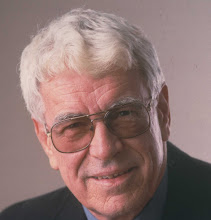October 12, 2008
It's Saturday, and Election Day is Tuesday. The markets are making like ski jumpers, taking oil prices and the loonie down with stocks, and roiling the electorate as well. The election results are anyone's guess.
But beneath today's campaign, some long-term changes are afoot. For example, an insistent theme among the pundits has been the fragmentation of the left, and the advantage it gives to the united right led by Stephen Harper. The left, we're told, will inevitably unite, as the right did, undergoing the political equivalent of a corporate merger aimed at regaining market share.
I'm not so sure.
Three of the four parties to the left of the Harperites are built around a strong set of principles. New Democrats are dedicated social democrats, the Greens are channelling the planet, and the Bloc Quebecois wants a sovereign Quebec. Furthermore, the NDP and the Greens have gained significantly in this campaign, and the Bloc's support, though fluctuating, has remained substantial. Why would any of these parties throw in the towel?
That leaves the Liberals, innocent of principles, tacking to port or starboard in response to the shifting winds. In fairness, many Liberals would argue that a stable government for a country as large, fractious and varied as Canada must be a pragmatic coalition that eschews rigid principles. For the past century, that devout opportunism has been a winning strategy – but its day may be over.
The Liberals today find themselves led by an admirable Green-hearted man whose signature policy is a complicated tax measure that demands explication in a language still foreign to him, as the famous ATV interview clearly showed. Indeed, whenever he speaks, Dion infuriates the grumbling minority in English Canada who consider that the Quebec tail has been wagging the Canadian dog for decades. And the author of the Clarity Act is not even very popular in Quebec.
So, despite a brief blip of recent enthusiasm, the Liberals never gained much traction. The party has also been badly weakened by the Martin-Chretien wars, and by the out-migration of all its heavy hitters – Manley, Rock, Tobin, Copps, Graham, McKenna. Its surviving MPs are likely to be in a mutinous mood after the election. Without the discipline of power or the prospect of power, this is not a party with any great internal cohesion.
Now consider the results of recent polls, which show the Harper crowd at about 35%, the Liberals near 25%, the NDP around 20%, the Greens at 12% or so, and the Bloc somewhere under 10%. Do the math. If those percentages were reflected in seats, then any two of the first three would have enough support to challenge the Conservatives, and to ask the Governor-General for an opportunity to form a government. They could then do what Harper has done, namely to attract just enough support from a third party to survive the inevitable votes of confidence.
That won't happen soon. But the numbers underline the point that Canada is a centre-left country which is now being steered by a right-wing minority. That's an unstable situation. And the centre-left parties don't have to merge in order to rule. They only need to learn the tricks of coalitions and voting alliances, like politicians in other multi-party legislatures like those of Germany, Ireland, Italy, France and Israel.
The party which seems at risk is the Liberal Party. Its only real raison d'etre was to put a roof over an improbable alliance of interest groups, and that alliance has fallen apart. Its once-solid base in Quebec has vanished, as has its once-reliable strength among women and immigrants. Its weakness could easily accelerate into collapse.
For that matter, the Harper Conservatives remain an uneasy marriage of former Progressive Conservatives and Western true-believers held together largely by the unfamiliar experience of power. When the party loses power and Harper moves on – which will eventually happen – will the Conservative Party also unravel, as it did after Brian
Mulroney?
In terms of seats, the next Parliament may well resemble the last one. Beneath the surface, though, strong currents are running. Politically, this election looks like a watershed – the true end of the last century, and the real beginning of the new one.
-- 30 --
Subscribe to:
Post Comments (Atom)

No comments:
Post a Comment